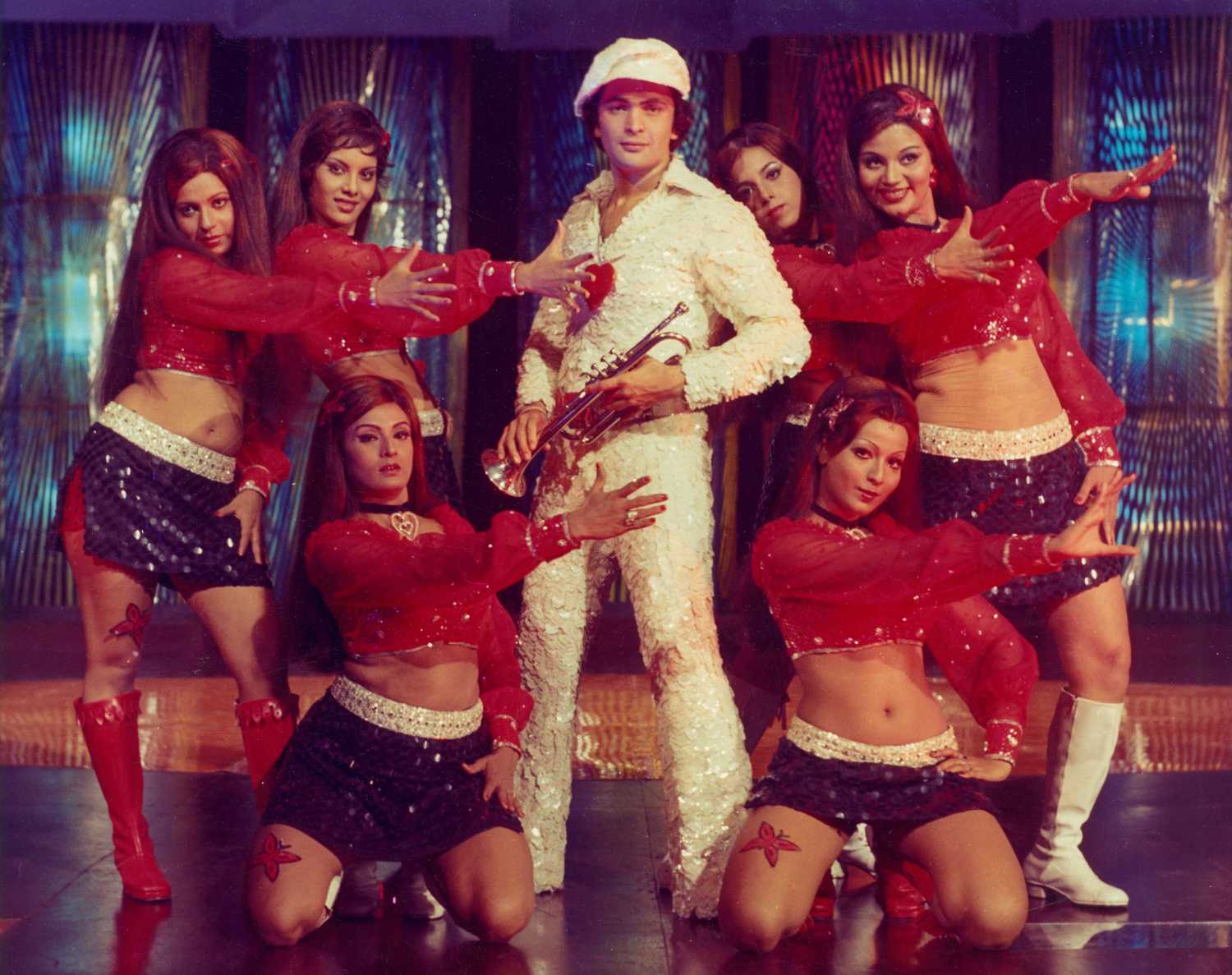The film, directed by Nasir Hussain, released on this day in 1977 and featured a one-of-a-kind medley with its leads.
Remembering RD Burman's chart-busting music in Hum Kisise Kum Naheen
Mumbai - 25 Aug 2016 9:30 IST


Sonal Pandya
Next year marks the 40th anniversary of Nasir Hussain’s Hum Kisise Kum Naheen. The hit director of Tumsa Nahin Dekha (1957) and Dil Deke Dekho (1959) had a slew of musical hits in the 1970s and Hum Kisise Kum Naheen was one of the standouts of this decade.
Starring Rishi Kapoor, Tariq, Kaajal Kiran and Amjad Khan, the film featured a special appearance by Zeenat Aman. The story, while a little convoluted, was typical of most Hussain films. Rishi Kapoor played Rajesh, a young man suddenly saddled with money woes after his father’s death. While en route to India from Africa, Rajesh’s father (Murad) suffers a heart attack. On his person is a belt containing numerous diamonds, the family’s lifetime earnings, which mysteriously disappears and plunges young Rajesh into debt.

After bringing out the MacGuffin early in the film, Hussain and screenwriter Sachin Bhowmick begin to introduce to the cast of characters in the tale. Amjad Khan is Saudagar Singh, a man with ulterior motives who pretends to assist Rajesh get back the diamonds. Added to this mix is debutante Kaajal Kiran as Kajal, whose father Kishorilal once attempted to steal the diamonds. There’s also Tariq (Nasir’s nephew) as Sanjay, her childhood friend whom Kajal was once promised to wed.
Woven in between all of this is the chart-busting music of RD Burman. Each of one of the nine songs composed by RD Burman and written by Majrooh Sultanpuri off the soundtrack was successful. The film’s famous medley has four distinct songs (‘Chand Mera Dil’, ‘Aa Dil Kya Mehfil Hai Tere’, ‘Tum Kya Jano Mohabbat Kya Hai’ and ‘Mil Gaya Hum Ko Saathi’) that goes on for nearly 10 minutes with the backdrop of the All India Pop Contest where the lead trio takes part in.
Husain worked with Burman in nine of his films, eight of which he himself directed. And while the credit for the film’s music usually goes to Burman, the idea for the medley was actually the brainchild of the director himself. Author Akshay Manwani, whose book of the legendary filmmaker is due later this year, said, “Nasir Hussain says that this is something that we [him and Burman] picked on a visit to Tiffany’s discotheque while on a visit to London. He found that people at the discotheque kept dancing even as one song changed to another to another. So he told RD Burman, he wanted something like this, where the tune changes and there’s a distinct mukhda and antara for each song. And it has to be seamless. That idea was basically Nasir Hussain’s and then RD Burman executed it according to his requirements.”
Manwani believes that Hussain was “the master of the rom-com musical.” The writer further elaborated that, “Just like the West has master musical filmmakers like Vincente Minnelli and Busby Berkeley, Nasir Hussain is the master, I would say. My own realisation after writing this book is that when we get into that 1960s period of colour and open landscape and Kashmir, countryside and all of that, Nasir Hussain is one among every two or three filmmakers who was putting together the most interesting song sequences in Hindi cinema.”
Manwani further refuted the claim that Hussain essentially had a set formula to his films. “Having this one story to tell is not such a big problem, because a lot of great filmmakers, past and present, have essentially told the same story, again and again. It’s just that Nasir Hussain went out there and he said this in some interview or he said this in jest to people, ‘Main ek hi file le aaya tha Lucknow se,’ (I've only brought one file from Lucknow) which became such a big thing. People started judging him on that.”
Manwani cites Imtiaz Ali as another filmmaker whose films are essentially about the hero or heroine going a journey of discovery. Ali isn’t referred to as a formula filmmaker by any means. Looking at Hussain’s filmography in reverse allows us to see that most of his films really didn’t have that much in common. He concluded the point by saying that making the same film again and again is not necessarily a bad thing.

Hum Kisise Kum Naheen was Husain’s last hit before a string of flops in the 1980s. He returned to writing and produced hits Qayamat Se Qayamat Tak (1988) and Jo Jeeta Wohi Sikander (1992) for his son, Mansoor Khan. The film’s other two leads, Tariq and Kaajal Kiran, weren’t able to take advantage of its success and never quite replicated the early prosperity of their careers.






